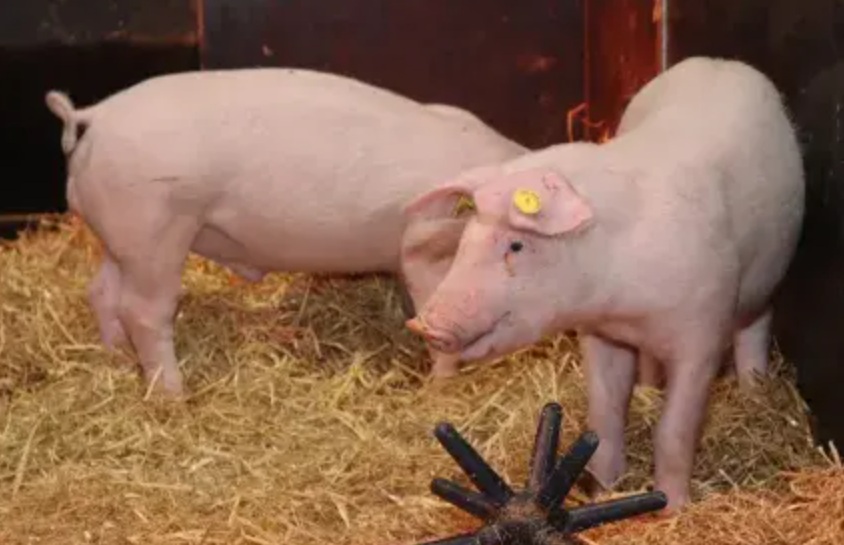
In a breakthrough for animal health and biosecurity, scientists at the Roslin Institute have successfully developed pigs resistant to classical swine fever (CSF) using cutting-edge gene-editing technology.
The highly contagious virus, which was last detected in the UK in 2000, continues to cause devastating outbreaks across Europe, Asia and Latin America, costing the global pig industry millions of pounds each year.
Researchers at the world-renowned Edinburgh institute modified a protein that the virus relies on to replicate inside pig cells. In controlled trials, the gene-edited pigs remained completely healthy when exposed to CSF, while unedited pigs developed the disease.
The team said the genetic alteration provided “complete protection from infection” without affecting the pigs’ health, growth or development.
They also believe the modified animals would be unlikely to transmit the virus to others, potentially offering a powerful new tool to combat one of the world’s most damaging livestock diseases.
Before creating the pigs, the Roslin team collaborated with international partners to study how a group of viruses known as pestiviruses — which includes CSF — interact with pig cells.
They focused on a key protein called DNAJC14, previously identified as crucial to the replication process. In laboratory studies, altering the gene responsible for producing this protein stopped the virus from reproducing in cultured cells.
Based on those findings, researchers made a precise change to a section of the DNAJC14 gene in pig embryos, disabling the virus’s ability to hijack the animal’s cellular machinery.
The embryos were implanted into surrogate mothers, and when the offspring reached adulthood, they were exposed to the CSF virus under controlled conditions.
Over several weeks of monitoring, the gene-edited pigs showed no signs of infection, while unedited pigs developed typical symptoms of the disease — confirming the edit’s protective effect.
Dr Simon Lillico, core scientist at the Roslin Institute, said the results demonstrate the growing potential of genetic technology to protect animal health and improve sustainability.
“Our research highlights the growing potential of gene editing in livestock to improve animal health and support sustainable agriculture,” he said.
The study, published in Trends in Biotechnology, was conducted in collaboration with Genus/PIC, the Animal and Plant Health Agency (APHA), and the University of Lübeck in Germany.
The project received funding from the BBSRC National Bioscience Research Infrastructure and support from the Large Animal Research and Imaging Facility at the University of Edinburgh.
Although classical swine fever has not been detected in the UK for 25 years, it remains endemic in many parts of the world and continues to threaten biosecurity.
Experts say the Roslin breakthrough could pave the way for disease-resistant livestock that reduce the need for culling and vaccination during outbreaks — a potential game-changer for global animal health and food security.
However, gene-edited animals remain subject to strict regulation and public scrutiny in the UK and Europe, meaning any commercial rollout would still require extensive review and approval.
Even so, the work marks another milestone in the Roslin Institute’s legacy of livestock innovation — building on its world-leading role in genetic science since the creation of Dolly the sheep nearly three decades ago.
